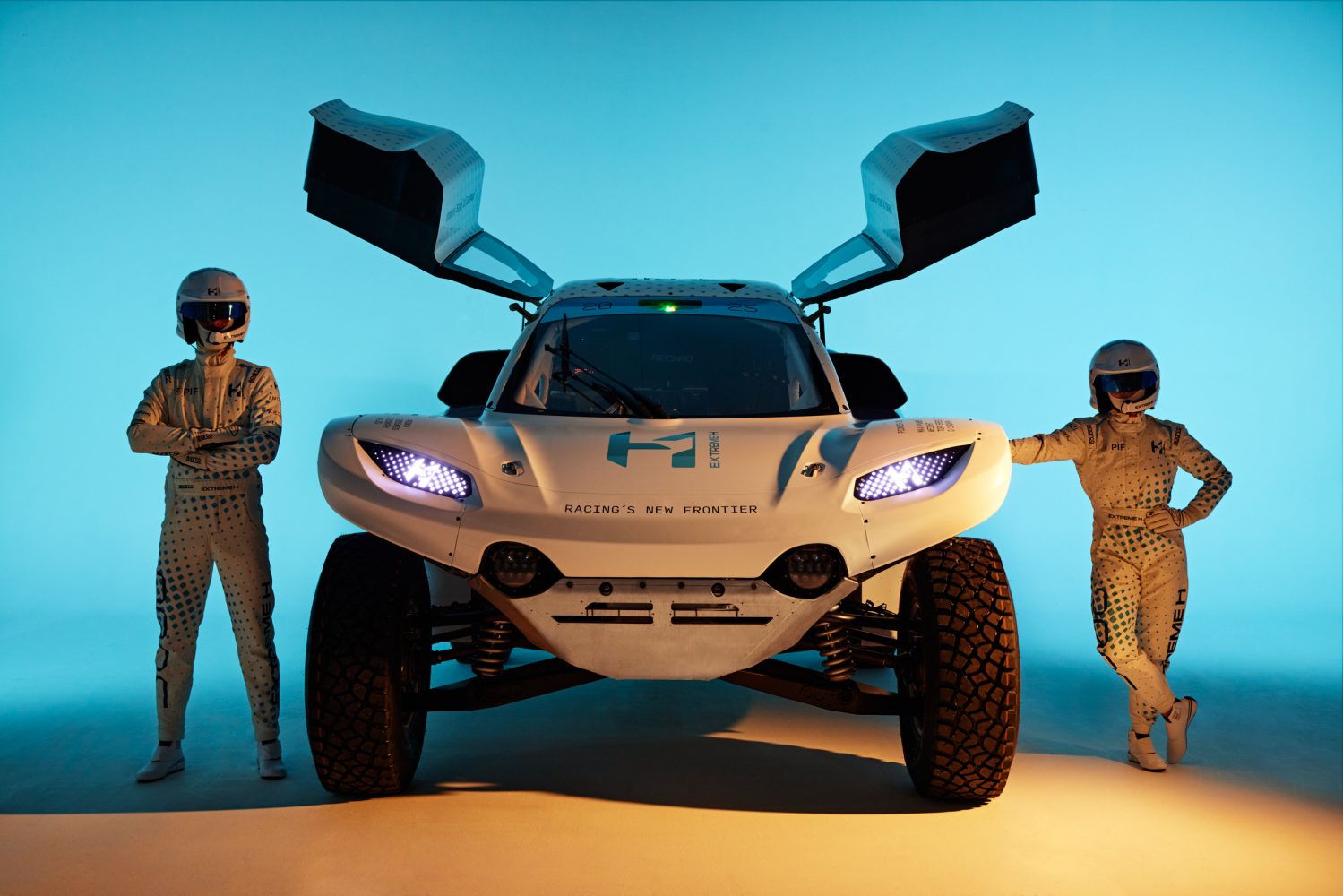
Excessive E, the electrical off-road racing collection, is transitioning to utilizing hydrogen as a substitute of batteries for the 2025 season, and right now it unveiled the automotive it plans to make use of subsequent yr – when it is going to additionally change its identify to Excessive H.
Excessive E is within the midst of its fourth season proper now, having had the primary race weekend in Saudi Arabia and with the second race weekend developing in Scotland, July 13-14.
Up to now three seasons, we’ve been handled to some fairly wild off-road racing, with highly effective electrical vehicles bouncing over desert sand dunes, glaciers, seashores, and even an outdated coal mine.
It’s been thrilling to observe, however the collection additionally has a sustainability message – every location is supposed to focus on an ecological problem we’re all dealing with, and the collection additionally does a “legacy programme” the place it participates in trying to unravel some native conservation problem (e.g. mangrove or ocean seagrass preservation, wildfires, glacier soften, or so on).
To this finish, the collection additionally focuses on being sustainable in its personal practices. Automobiles are shipped from race to race on the St. Helena, an ship transformed to make use of extra sustainable applied sciences and to function a analysis lab for the scientists the collection companions with. And the collection tries to create much less waste in every of its areas, with everybody bringing their very own reusable plates and silverware for instance.
And because it races in distant areas, it must get vitality from someplace. The vehicles don’t simply cost themselves. So the collection has been utilizing inexperienced hydrogen – made with renewable vitality, versus nearly all of hydrogen which comes from methane fuel – to cost autos, with giant transportable gasoline cells (and second life batteries for backup) bringing energy to areas the place the grid doesn’t attain.
So, for season 5, Excessive E is “reducing out the center man” and simply going straight from hydrogen to electrical energy onboard the automotive, as a substitute of charging a battery with an offboard gasoline cell. And right here’s subsequent season’s automobile, which Excessive E – or fairly, Excessive H, as it is going to be recognized beginning in 2025 – is looking the “Pioneer 25.”
Excessive H unveils Pioneer 25 race automotive
The Pioneer 25 shares numerous similarities with the outgoing Odyssey 21 automotive.
They each have ~400kW/550hp price of energy obtainable, can do 0-62mph in 4.5 seconds with a high pace of ~200kph (~124mph), and might scale a slope of as much as 130% (53º). So when it comes to the essential specs, the vehicles appear fairly shut.
However there are a pair small variations that we will see to this point. The Odyssey 21 was 2.3 meters extensive, and the Pioneer 25 is 2.4 meters. The Odyssey had two “seats,” with the motive force offset to the left, whereas the Pioneer seats the motive force within the heart.
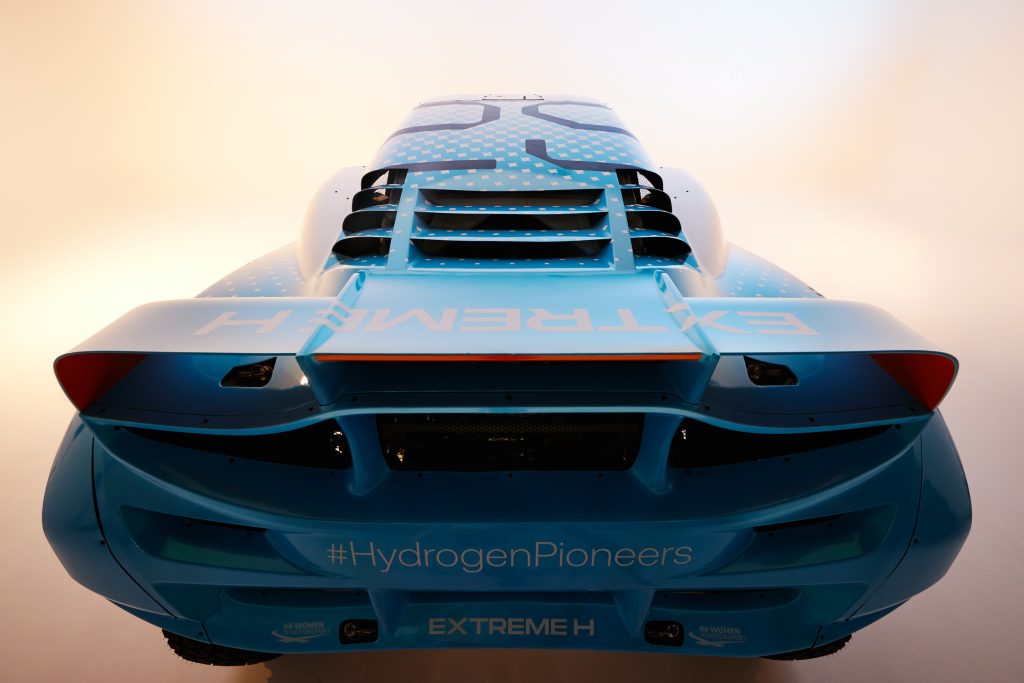
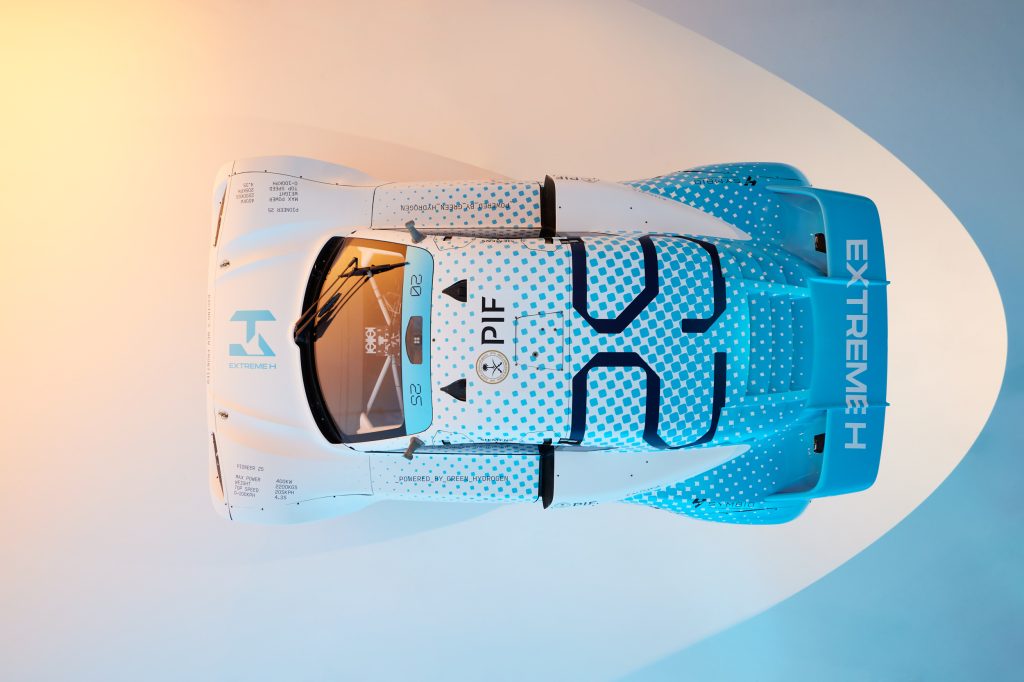
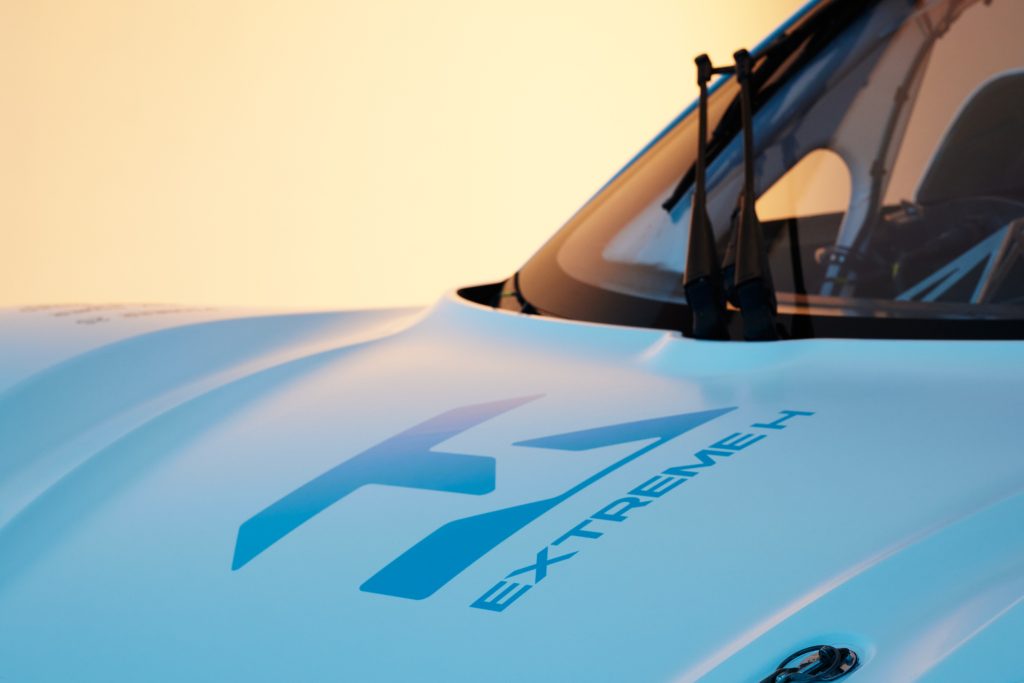
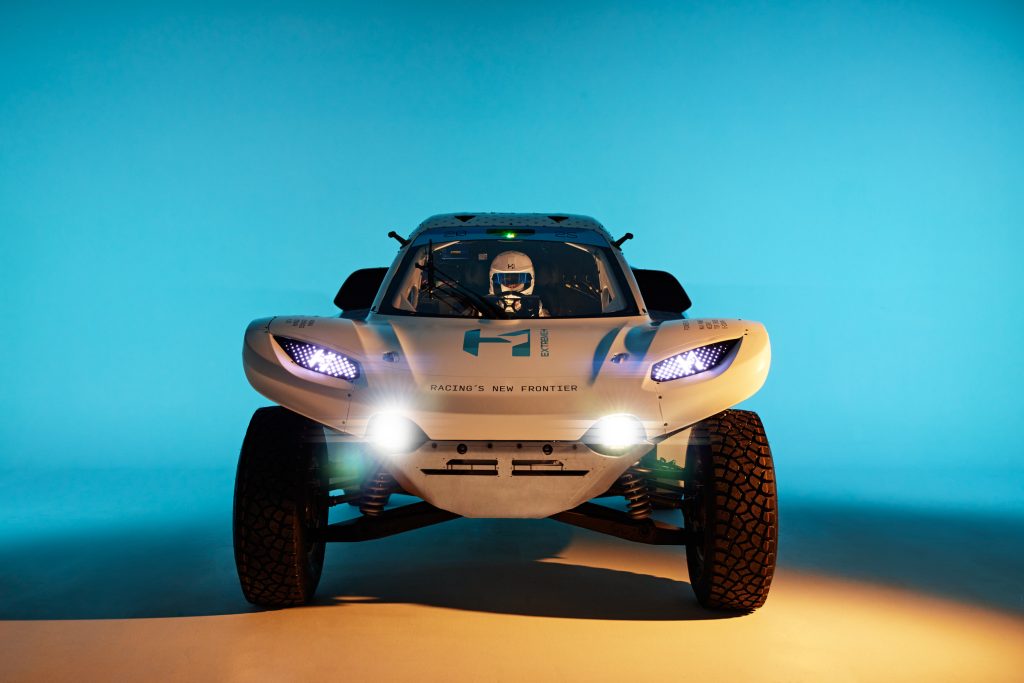
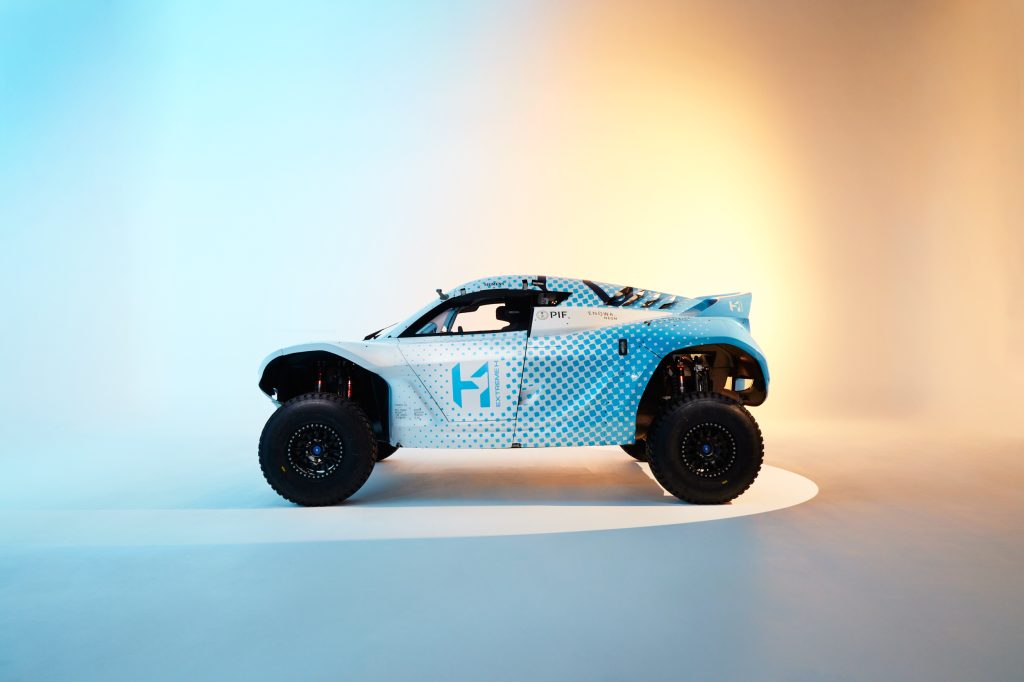
And the largest distinction of all – Excessive E stated that the Odyssey weighs 1,895kg (we’re undecided if this contains the motive force or not), however it says that the Pioneer weighs 2,200kg, a 305kg (672lb) enhance.
That’s a large distinction, particularly for a race automotive, and particularly if the vehicles have the identical energy obtainable. We’re undecided how they’ll quote the identical 0-60 time with such a weight distinction and no distinction in motor energy (torque is just not listed, however is probably going the identical on condition that battery electrical (BEV) and fuel-cell electrical autos (FCEV) each run on electrical motors, so we’d think about they’re carrying over the identical or related motors).
And we’re additionally undecided the place all that weight is coming from. One of many supposed advantages of hydrogen is larger vitality density, which implies much less want for heavy EV batteries. However an FCEV wants two extra elements {that a} BEV doesn’t – a gasoline cell stack and a high-pressure hydrogen tank. FCEV’s additionally have a battery to behave as a buffer for the gasoline cell stack, however it may be lots smaller than on a full BEV.
However the Odyssey solely had 54kWh (40kWh usable) of batteries onboard to start with – comparatively small within the scheme of EV batteries as of late. Off-road racing is vitality intense, however races for the collection aren’t very lengthy, so 40kWh is sufficient. So reducing battery measurement may avoid wasting weight, however not all that a lot.
So maybe the Pioneer nonetheless has a comparatively giant battery (as bigger batteries can push extra energy), and the extra weight of a gasoline cell stack and excessive strain tank – the final of which needs to be fairly heavy responsibility to carry hydrogen, particularly within the troublesome racing circumstances Excessive H might be racing in (a 700 bar, 4-6kg capability tank is round 100kg – the Pioneer has a 2kg tank, however could also be bolstered extra for racing functions).
Excessive H says that “general efficiency of the automotive has taken a giant step ahead,” and that the suspension geometry of the automotive has been absolutely redesigned. The Odyssey additionally noticed adjustments over its lifetime, altering suspension suppliers final season to FOX, and the Excessive H will even use FOX suspension.
However we’re nonetheless undecided how a automotive with an identical energy and far more weight can carry out higher. Let’s go forward and put a pin in that for once we see these vehicles in motion.
Fortunately, we’ll have an opportunity quickly. The Pioneer 25 will go on its first public check on the Hydro X Prix in Scotland on July 13-14.
Excessive H additionally introduced a provisional listing of race areas for subsequent yr, with races in Saudi Arabia, UK, Germany, Italy, and USA.
Electrek’s Take
I believe that the majority of our readers acknowledge at this level that hydrogen is just not going to take off in client autos. If this collection desires to push hydrogen as an concept for client vehicles, or for sportscars, it’s… most likely not going to go anyplace.
Nevertheless, for the race collection’ particular use case, it makes some quantity of sense. The collection was already utilizing hydrogen anyway, and hydrogen is much more transportable than batteries for locations with no grid. And Excessive E thinks it has made its level, demonstrated that BEVs are able to this sort of racing, and might transfer on to one thing new now.
However the truth that this transfer has resulted in such an enormous weight acquire for the vehicles is puzzling to me. Whereas I’ve seen extraordinarily heavy tanks on gasoline cell autos earlier than (e.g. the Nikola Tre FCEV class 8 truck has 4 tanks weighing 450lb every, a gasoline cell stack and a 164kWh buffer battery, and the Honda CR-V e:FCEV is 1,000lbs heavier than the fuel CR-V), you don’t usually see racing/sports activities vehicles gaining such monumental quantities of weight within the span of 1 era (the 1,000+lb heavier 2025 BMW M5 however).
So I battle considerably to see the purpose of this. Beforehand, Excessive E hosted superior race occasions with a neat story, demonstrating environmental points and exhibiting a practical and sustainable reply for transportation – BEVs. It fueled these BEVs with hydrogen by way of offboard stacks and tanks, leaving the load and complexity of them behind within the paddock because the vehicles frolick round within the grime.
Now, it’s internet hosting superior race occasions with a neat story, demonstrating environmental points and exhibiting off… a transportation reply that demonstrably doesn’t make any sense, lumbering round carrying all this additional tools that may by no means see the sunshine of day at scale in client functions.
The one factor it may assist to encourage is getting the inexperienced hydrogen economic system going, since at the moment ~95% of the worldwide provide of hydrogen comes from methane, a fossil gasoline that’s extremely damaging from a local weather perspective. Inexperienced hydrogen is generated by electrolysis of water by way of renewable vitality, primarily utilizing the hydrogen as a extra transportable however much less environment friendly battery to retailer that renewable vitality.
A inexperienced hydrogen economic system might be helpful if we ever give you widespread makes use of for hydrogen (which may discover a area of interest in heavy transport) – however these makes use of aren’t more likely to are available in client functions. And in the event that they end in a 305kg weight penalty, I don’t actually see them occurring in racing functions both.
FTC: We use earnings incomes auto affiliate hyperlinks. Extra.


